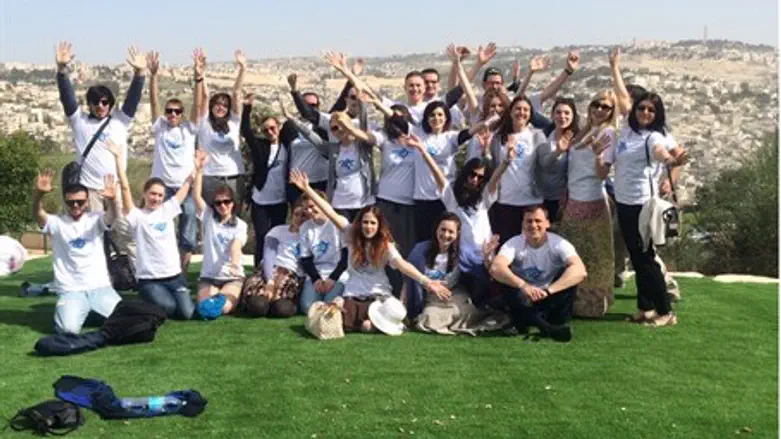
Germany’s is not typically the first country Jews consider when asked which they think is the most dynamic, growth-bound Jewish community in the world. However, that is exactly what it is. Spurred by decades of German political repentance, a rising class of Jewish-interested scholars, and a large influx of Jewish immigrants from the former Soviet Union, Germany has become an unexpected focal point of Jewish growth in Europe.
One example of that growth is Germany’s contribution to Birthright Israel. While Europe palls in comparison to American and Canadian programs, Berlin is second only to Paris in terms of participants.
“With the exception of France, Germany has had the most number of Taglit participants from Western Europe,” says a spokesperson for Taglit Birthright Israel.
Over Passover, another trip of 40 participants made the trip to the Holy Land, seeing the same sights and sounds that their North American counterparts do on their journeys, including places like Masada and the Western Wall alongside the Temple Mount.
"It is incredible to see how the whole country is getting ready for the holiday, making preparations for their Passover Seder and selling their chametz,” says Martin Fisher, a 26-year-old participant on the program. “I feel lucky to be able to experience this special time together with the Jewish people here in Israel. I am looking forward to sharing my stories with my friends and family when I go back home.”
“Between the years 2000-2014 there have been 4,522 German participants on Taglit-Birthright Israel,” says Stelman. “2008 was our strongest year for Germany with 786 participants.”
Since then, participation has been steady, with 345 young German Jews making the trip in 2014. There is optimism that this year will see that number continue to rise.
That does not mean growth is not without its challenges. The rise of anti-Semitism the last several years aside, there is a distance that Jewish activists must cover to bring in both that former-Soviet immigrant constituency and the younger generation. Younger Jews in Europe, much like in North America, are also hard-pressed to become affiliated with a formal Jewish community.
Karen Körber, of the Academy of the Jewish Museum in Berlin, spoke about outreach to younger Jews earlier this year to Der Spiegel, saying "The younger generation is highly flexible and mobile. They have a tough time with community structures based on the idea of lifelong membership."
"In light of what is happening in Europe today it is clear to us that the visit of these young Jewish adults from Germany during Passover, the festival of freedom, is especially meaningful,” says Gidi Mark, CEO of Taglit-Birthright Israel. “We are confident that their first visit to Israel will result in a lasting bond with the land and people of Israel, marking the end of a successful winter season."